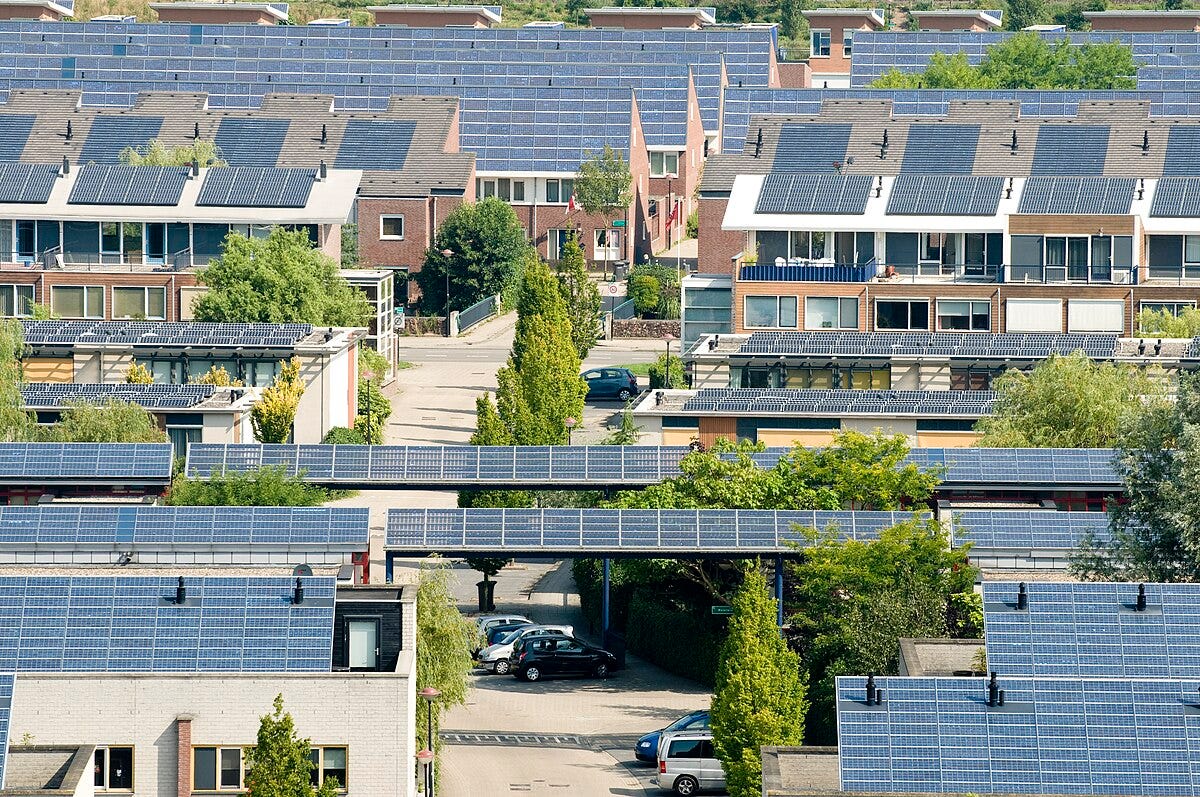News Round-Up: Free Speech Decline in the UK, J&J Scientist Admits Covid Vaccines Not ‘Safe and Effective’, and Netherlands Rations Electricity Due to Decarbonisation
Every week, the editorial team of Freedom Research compiles a round-up of news that caught our eye, or what felt like under-reported aspects of news deserving more attention.
Over the past week, the following topics attracted our attention:
Britons feel they can no longer speak freely.
Results of decarbonisation: Netherlands rations electricity to ease power grid stress.
J&J chief scientist admits on hidden camera: COVID vaccines were not “safe and effective”.
UK: school punishes a 12-year-old girl for celebrating her British heritage on culture day.
UK: English no longer the first language in more than 2,000 schools.
Poll: Britons feel they can no longer speak freely
Free speech is under threat because Britons feel they cannot speak out for fear of offending others over race, religion and immigration, a study has found, The Telegraph reports.
Nearly half of those polled, or 49%, believe people are too easily offended, particularly if they speak out on race and immigration issues, according to research for the Commission for Countering Extremism, which advises the Government.
The more outspoken people’s views, the more likely they were to feel constrained by the risk of offending others.
36% felt they had to hold back on expressing their views on race or ethnicity, while 32% said they did not feel they could freely speak out on immigration or religious extremism. On asylum and Gaza, 31% felt constrained, rising to 41% for transgender issues.
Groups that were predominantly white, male, older and non-graduate were more strongly in favour of free speech, regardless of the issue, but at the same time felt more constrained in their ability to freely share their views about most topics. 48% of this group said they felt they had to restrain their comments on race, far higher than the average of 36%. The same was true on immigration, where 43% felt they had to hold back on their views compared to an overall average among the public of 32% who felt constrained.
Christians were more likely to back the right to free speech, but also more likely than average to feel they had to hold back on expressing their views. Conversely, women, younger Britons and people from ethnic minorities or non-Christian religions tended to think that people needed to be more sensitive in the way they spoke.
29% of all those polled agreed that people needed to be more sensitive. But this rose to 34% amongst women, 45% from ethnic minorities and 45% for non-Christians.
By contrast, men, people aged over 65 and those from white ethnicities and Christians were more likely to think that people are too easily offended. While on average 49% felt people were too easily offended, this rose to 56% for men, 54% of those from a white ethnicity, and 59% for Christians. These were nearly double the rates for people from ethnic minorities and non-Christians.
Race and ethnicity was the only topic overall where the balance of opinion was more towards avoiding offence rather than speaking freely.
People predominantly held back from expressing their views to avoid causing offence or starting an argument. 46% resisted expressing their views on any religious figure, text or teaching and just 35% held back their political views to avoid causing offence. Some said they held back because of heightened concerns about their safety. For religious topics, 25% said they restrained themselves because of safety fears, and 17% over political views.
The report said there was a group of people for whom free speech was a significant issue. They represented about 37% of the total sample and were described by researchers as those who were most concerned about the pace of change.
The study, based on interviews with 2,300 people, was conducted by Ipsos to establish the state of free speech in Britain.
Results of decarbonisation: Netherlands rations electricity to ease power grid stress
Thousands of businesses and households are waiting to connect to the Dutch grid, forcing network operators to ration power in an early indicator of what other European countries are likely to suffer as the speed of electrification increases, the Financial Times reports.
More than 11,900 businesses are waiting for electricity network connections, according to Netbeheer Nederland, the association of Dutch grid operators. On top of that are public buildings such as hospitals and fire stations, as well as thousands of new houses. In some areas of the country, new connections will only become available in the mid-2030s, according to network operators.
The Netherlands is among the countries in Europe to have moved fastest in electrifying critical parts of the economy after 2023, when it ended production at its giant onshore gasfield, Groningen. More than 2.6 million Dutch homes now have solar panels on their roofs, Netbeheer Nederland figures show. Companies also accelerated their move away from gas after the EU’s energy price crisis in 2022. The country had been so used to relying on its gas resources that power grid upgrades had not kept pace, its national power grid operator, Tennet, said.

Although the bottlenecks in the Netherlands are particularly acute, analysts say it is a harbinger of what is likely to occur in other EU countries, as the speed of electrification increases to meet the bloc’s ambitious decarbonisation targets.
J&J chief scientist admits on hidden camera: COVID vaccines were not “safe and effective”
Joshua Rys, a Lead Scientist in Regulatory Affairs for Johnson & Johnson (J&J), has revealed on hidden camera footage that the typical clinical process was abandoned for the COVID-19 vaccine, knowingly bypassing standard testing protocols under pressure from the U.S. government and public demand, journalist James O’Keefe from the O’Keefe Media Group has revealed.
“We didn’t do the typical tests,” Rys admitted. He added, “This was just, ‘let’s test it on some lab models… and just throw it to the wind and see what happens.’”
Rys acknowledged that the public wasn’t informed about the shortcuts, asking, “Do you have any idea the lack of research that was done on those products?” Rys claimed, “People wanted it, we gave it to them.”
While public officials claimed the vaccines were “safe and effective,” Rys pushed back. “There’s no proof. None of that stuff was safe and effective,” he said, adding that the industry relies on a benefit-risk tradeoff to justify product launches.
Rys also pointed to government pressure through Operation Warp Speed. “The government is like, ‘We need help… You’re solving this problem,’” he said. “People panic, so they try to solve it in whatever way they think is good.”
UK: school punishes a 12-year-old girl for celebrating her British heritage on culture day
A 12-year-old girl Courtney Wright, who attends Bilton School in Rugby, UK, was "removed" by teachers for celebrating her British heritage on a cultural diversity day at school, GB News reports. On diversity day children at school could wear clothing representing their culture and write a speech about their heritage. Wright chose to wear a Union Jack dress and wrote a speech about Britain's history and traditions.
However, her father, Stuart Field, had to collect the 12-year-old from school before the end of the day after he claimed she was told culture day was "not for her". "On my way to collect my daughter from school. She's currently being made to sit at reception waiting for me", Field wrote on Facebook. "She has been told it's not for her as she gets to celebrate being British everyday."
Field added that he believed the teachers had "removed" his daughter for "being proud of her country". In her speech, Wright wrote that she thinks culture "should be for everyone". "Being British is still a culture and it matters too. It’s part of who I am," the school pupil wrote. "So let’s celebrate all cultures — whether they come from far away or right here at home."

Ahead of the culture day, Bilton School said it was a "special day" which was "dedicated to recognising and celebrating the rich cultural diversity" in its community. The school encouraged pupils to "consider wearing attire that reflects their nationality or family heritage".
A spokesman for Stowe Valley Trust, which runs the secondary school, said it offers its "unreserved apologies" to the family.
UK: English no longer the first language in more than 2,000 schools
English is no longer the first language for the majority of pupils at more than 2,000 schools, MailOnline writes.
No children at two primary schools – one in Tower Hamlets and another in Kirklees, West Yorkshire – have English as their mother tongue. Statistics, obtained by the publication under Freedom of Information (FOI) laws, show nine in ten pupils don't speak only English at home at 107 schools.
In total, English is no longer the first language for the majority of children at 2,039 schools. Nationwide, English isn't the first language of 1.8 million pupils, or one in five pupils. Fuelled by immigration having spiralled to all-time highs, this has risen from 1.1 million ten years ago.



I only like this article because of the frightening observations being made. The family of all these children moved to the United Kingdom because it was the bastion free speech, mutual respect and self-worth. These are Judao Cristian values that built the United Kingdom and Western Europe into a place where millions have sought refuge and advantage.
Seems some people in the United Kingdom have become lost and confused in their values . I hope they find their courage like their forefathers and foremothers did !